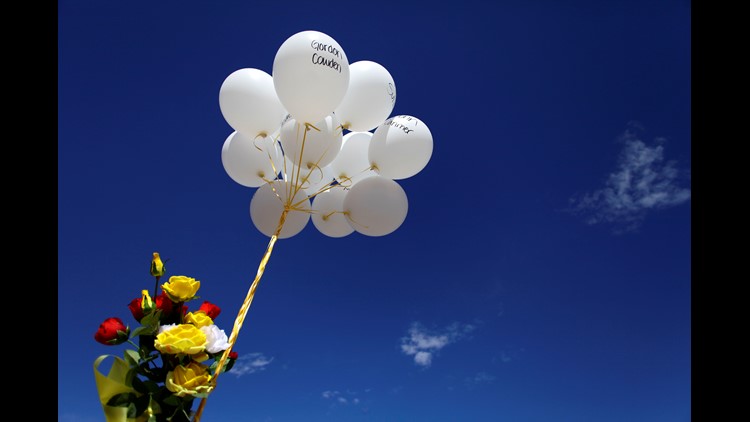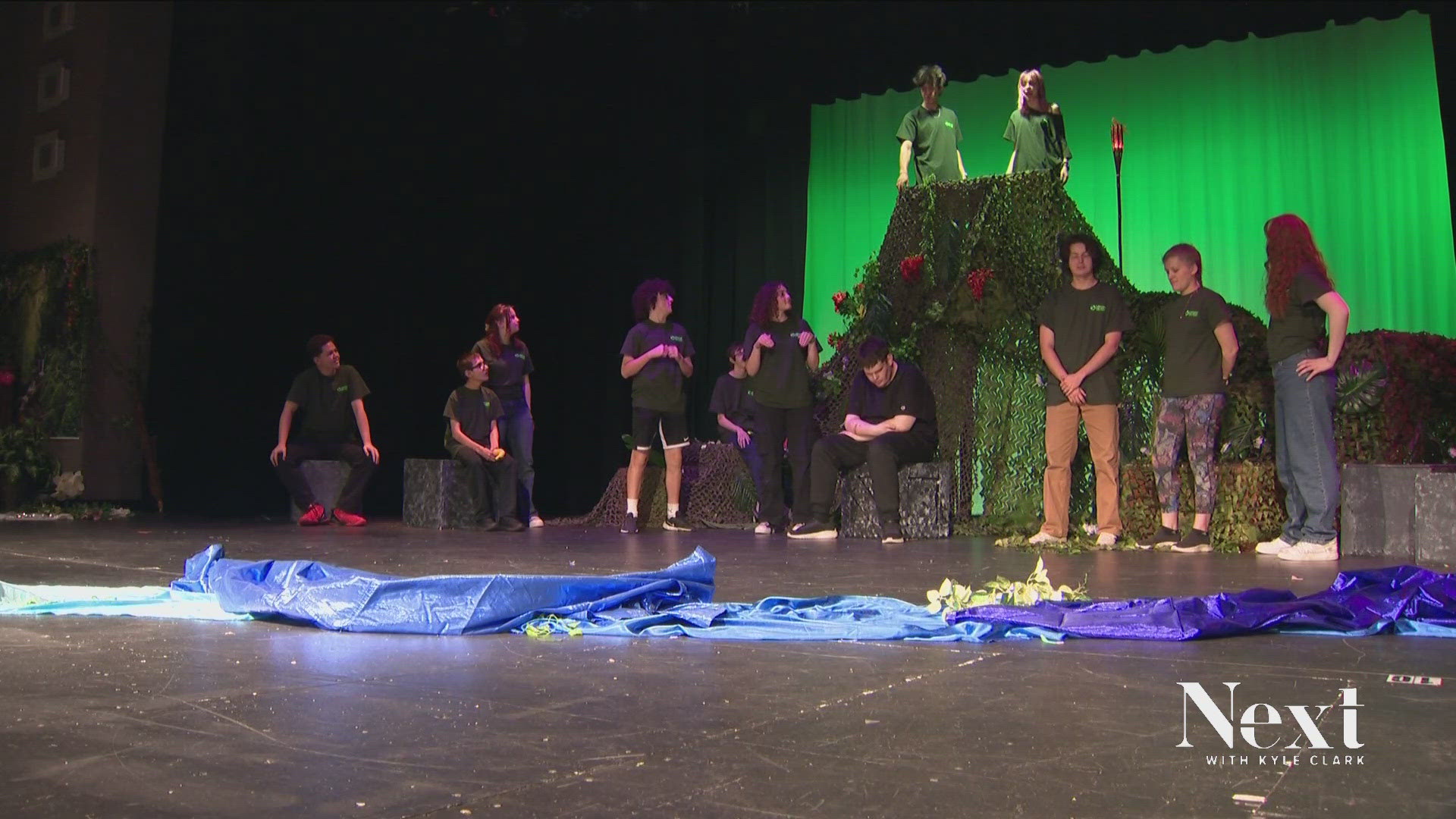DENVER – It’s a question that psychologists and journalists increasingly wrestle with: Are the people who engage in public violence trying to become famous, and would it help if the media stopped naming and showing them?
For Tom Teves, the father of Alex Teves who died in the Aurora theater shooting in 2012, the answer is a loud and clear yes. “Honestly, I don’t understand why we’re having this conversation,” Tom Teves told 9NEWS in 2015. “This should’ve been done a long time ago.”
Many people agree with him, including two researchers from Western New Mexico University who presented a paper on the topic this week at the American Psychological Association convention in Denver.
Jennifer Johnston and Andrew Joy end the paper with this statement: “The media has come together before to work for good, to incite social change. They have done it, and they can do it. It is time.”
Johnston and Joy’s research is entitled “Mass Shootings and the Media Contagion Effect” which argues the possibility that naming and showing shooters repeatedly in the media stimulates future violent episodes from other individuals who see value in killing as many people as they can, sometimes strictly for the purpose of generating coverage of themselves in the same media.
It’s a simple idea, but a complicated one to quantify. Estimates show only between 10 to 15 percent of shooters write or verbalize their thoughts on becoming famous as a result of their actions or attribute their motives to previous violence.
There are many theories about the factors that contribute to public violence. Criminologist Adam Lankford from the University of Alabama is concerned about the power of celebrity in present day U.S. culture. “Young people care more about being famous,” Lankford said. “They don’t care whether it’s good fame or bad fame.”
Jaclyn Schildkraut from the State University of New York-Oswego points out that fictionalized TV shows feature plots about mass shootings that spread the idea of public violence even further.
And Eric Madfis, a sociologist from the University of Washington-Tacoma has studied the number of white heterosexual males who may be more likely to commit public violence based on frustration over their perceived natural right to a successful life that isn’t going the way they think it should.
Does all that add up to media coverage motivating future shooters?
Anuj Mubayi, a mathematics expert from Arizona State University answered the question of what would happen if the media denied shooters the fame some of them may be looking for. “Hard to say,” he said, because more research is required to make a valid statistical projection.
There is wider agreement about the ethics of focusing attention on the victims of public violence as opposed to those responsible for it.
“Put the emphasis back on victims and first responders,” was the sentiment expressed by Hunter Martindale, a criminologist from Texas State University-San Marcos, which manages the Advanced Law Enforcement Rapid Response Training (ALERRT) program.
Martindale works closely with the FBI and emphasized that FBI Director James Comey pointedly declined to use the name of the Orlando nightclub shooter at a news conference in June. “You will notice that I am not using the killer’s name, and I will try not to do that,” Comey said.
Douglas County Oregon Sheriff John Hanlin has also refused to publicly speak the name of the shooter who killed nine people at Umpqua Community College in October 2015.
Movements to limit or even eliminate the use of names and photos of the perpetrators of public violence have titles like No Notoriety and Don’t Name Them.
9NEWS works to minimize the use of a shooter’s name or picture in stories.
After the Orlando nightclub massacre, CNN anchor Anderson Cooper made a point of showing and describing 48 of the victims while avoiding mention of the man responsible in a segment that lasted seven minutes.
But there is far from universal agreement on the topic among the media or even other experts on the relationship between violence and media coverage, in part because of the difficulty in knowing what will or will not influence the behavior of individuals who reach a point where they’re willing to commit mass public violence.
9NEWS and other Denver media have had vivid firsthand experience with the topic after a series of dramatic episodes of public violence in Colorado. On that note, this report ends with the names of those who were lost, as they’re certainly the ones worth remembering.
Columbine High School, April 20th 1999:
• Rachel Scott
• Daniel Rohrbough
• Dave Sanders
• Kyle Velasquez
• Steven Curnow
• Cassie Bernall
• Isaiah Shoels
• Matthew Kechter
• Lauren Townsend
• John Tomlin
• Kelly Fleming
• Daniel Mauser
• Corey Depooter
Platte Canyon High School, September 27th 2006:
• Emily Keyes
Century 16 Aurora, July 20th 2012
• Jonathan Blunk
• A.J. Boik
• Jesse Childress
• Gordon Cowden
• Jessica Ghawi
• John Larimer
• Matt McQuinn
• Micayla Medek
• Veronica Moser-Sullivan
• Alex Sullivan
• Alex Teves
• Rebecca Wingo
Arapahoe High School, December 13th 2013
• Claire Davis



